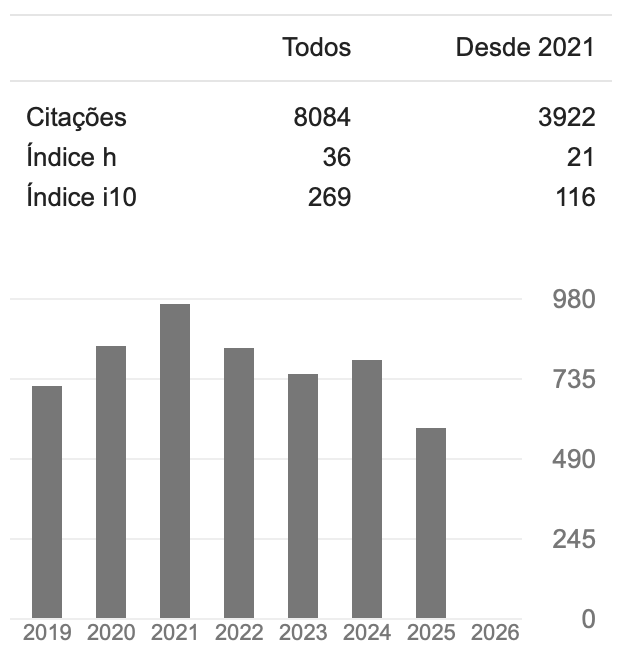"Reanimabebê": serious game for nursing team in cardiopulmonary resuscitation in pediatrics
DOI:
https://doi.org/10.17765/2176-9206.2022v15n2.e10306Keywords:
Cardiopulmonary resuscitation, Educational technology, Emergency, Nursing, PediatricsAbstract
Describe the process of planning and developing a digital technology, a serious game, aimed at assisting infant cardiopulmonary arrest by the nursing staff at an emergency care unit. Methodological study, developed according to Participatory Design in a Child Emergency Care unit. Participants corresponded to the nursing staff and expert judges. The game was constructed based on the choice of the theme by the staff, preparation of the script, referral to the computer team, making the game available to users and subsequent evaluation. For that, the EGameFlow instrument was used. Expert judges evaluated the game as a technological innovation, confirming its suitability for application in the aforementioned population of interest. The potential positive impact of using this type of tool in this complex care setting indicates the possibility of incorporating the serious game into continuing health education strategies, with a view to increasing the qualification of pediatric emergency care.Downloads
References
1. Subutzki LS, Lomba ML, Backes DS. The death of neonates: the multi-professional team’s perceptions of the problem in the light of its complexity. Avances en Enfermería. 2018; 36(1): 69-78. Disponível em: https://www.proquest.com/openview/954dc11893c0ab02f115121eb31b42e5/1?pq-origsite=gscholar&cbl=2035746
2. Loura DS, Bernardes RA, Baixinho CL, Henriques HR, Félix IB, Guerreiro MP. Nursing students' learning from involvement in research projects: an integrative literature review. Rev. bras. Enferm. 2022; 75(1): e20210053. Disponível em: https://doi.org/10.1590/0034-7167-2021-0053
3. Singleton H, James J, Penfold S, Falconer L, Priego-Hernandes J, Holley D, et al. Deteriorating patient training using nonimmersive virtual reality a descriptive qualitative study. Comput Inform Nurs. 2021; 39(11): 675-681, 2021. Disponível em: https://journals.lww.com/cinjournal/Abstract/2021/11000/Deteriorating_Patient_Training_Using_Nonimmersive.9.aspx#
4. Dias JD, Mekaro MS, Lu JKC, Otsuka JL, Fonseca LMM, Zem-Mascarenhas SH. Serious game development as a strategy for health promotion and tackling childhood obesity. Revista Latinoamericana de Enfermagem. 2016; 24:e2759. Disponível em: https://www.scielo.br/j/rlae/a/jQx7QxpXvLBPXSMCTHr5yHz/?lang=en
5. Min A, Min H, Kim S. Effectiveness of serious games in nurse education: A systematic review. Nurse Educ Today. 2022; 108: 105178. Disponível em: https://doi.org/10.1016/j.nedt.2021.105178
6. Girão ALA, Dos Santos MNO, Chaves EMC, Gomes EB, Oliveira SKP, Carvalho REFL. NurseVR: Development of a Serious Virtual Reality Game for Medication Preparation and Administration Training. Comput Inform Nurs; 2021; 24. Disponível em: https://journals.lww.com/cinjournal/Abstract/9000/NurseVR__Development_of_a_Serious_Virtual_Reality.99211.aspx
7. Gentry SV, Gauthier A, Ehrstrom BLE, Wortley D, Lilienthal A, Car LT et al. Serious Gaming and Gamification Education in Health Professions: Systematic Review. Journal of Medical Internet Research. 2019; 21(3):e12994. Disponível em: https://www.jmir.org/2019/3/e12994/
8. Johnsen HM, Fossum M, Vivekananda-Schmidt P, Fruhling A, Slettebo A. Nursing students' perceptions of a video-based serious game's educational value: A pilot study. Nurse Education Today. 2018; 62:62-8. Disponível em: https://pubmed.ncbi.nlm.nih.gov/29306100/
9. Wang R, DeMaria S Jr, Goldberg A, Katz D. A Systematic Review of Serious Games in Training Health Care Professionals. Simulation in Healthcare. 2016; 11(1): 41-51. Disponível em: https://pubmed.ncbi.nlm.nih.gov/26536340/
10. Bouko C, Alvarez J. Serious Gaming, Serious Modding, a Serious Diverting: Are you Serious?! Mapping the Digital: Cultures and Territories of Play. Inter-Disciplinary Press. 2016; 103-13. Disponível em: http://www.ludoscience.com/EN/diffusion/915-Serious-Gaming-Serious-Modding-a-Serious-Diverting-Are-you-Serious.html
11. Deguirmendjian SC, Miranda FM, Zem-Mascarenhas SH. Serious Game developed in health: Integrative Literature Review. Health Informatics Journal. 2016; 8(3):110-16. Disponível em: http://pesquisa.bvs.br/brasil/resource/pt/biblio-831881
12. Gautier EJD, Bot-Robin V, Libessart A, Doucede G, Cosson M, Rubod C. Design of a serious game for handling obstetrical emergencies. JMIR Serious Game. 2016; 4(2):e21. Disponível em: https://www.ncbi.nlm.nih.gov/pmc/articles/PMC5214697/
13. Creutzfeldt J, Hedman L, Tsai LF. Cardiopulmonary resuscitation training by avatars: a qualitative study of medical students experiences using a multiplayer virtual world. JMIR Serious Game. 2016; 4(2):e22. Disponível em: https://www.ncbi.nlm.nih.gov/pmc/articles/PMC5203677/
14. Torres M, Waechter H. Unicidade: Proposal to an active citizenship in the augmented urban space of Casa Amarela neighbourhood. Revista Brasileira de Design da Informação. 2015; 12(2): 239-47. Disponível em: https://www.infodesign.org.br/infodesign /article/view/393/236
15. American Heart Association. Pediatric Advanced Life Support Provider Manual. Impresso nos EUA: IntegralColor. Texas (USA): 2016. 352p.
16. American Heart Association. Destaques das Atualizações Focadas em Recomendações de 2020 da American Heart Association para RCP e ACE: Suporte Avançado de Vida Cardiovascular e Suporte Avançado de Vida em Pediatria. Texas (USA): 2020.
17. Limeira CD, Rosa JGS, Pinho AL. Desenvolvimento de jogos sérios digitais. In: III Congressso Ergotrip Design 2014. Design Ergonomia e Interação Humano Computador, 2014.
18. Baxter C, Carrol J-A, Keogh B, Vandelanotte C. Seeking Inspiration: Examining the Validity and Reliability of a New Smartphone Respiratory Therapy Exergame App. Sensors (Basel). 2021; 21(19). Disponível em: https://www.mdpi.com/1424-8220/21/19/6472
Additional Files
Published
How to Cite
Issue
Section
License
A submissão de originais para a revista Saúde e Pesquisa implica na transferência da Carta Concessão de Direitos Autorais, pelos autores, dos direitos de publicação digital para a revista após serem informados do aceite de publicação.A Secretaria Editorial irá fornecer da um modelo de Carta de Concessão de Direitos Autorais, indicando o cumprimento integral de princípios éticos e legislação específica. Os direitos autorais dos artigos publicados nesta revista são de direito do autor, com direitos da revista sobre a primeira publicação. Os autores somente poderão utilizar os mesmos resultados em outras publicações, indicando claramente a revista Saúde e Pesquisa como o meio da publicação original. Em virtude de tratar-se de um periódico de acesso aberto, é permitido o uso gratuito dos artigos, principalmente em aplicações educacionais e científicas, desde que citada a fonte. A Saúde e Pesquisa adota a licença Creative Commons Attribution 4.0 International.
A revista se reserva o direito de efetuar, nos originais, alterações de ordem normativa, ortográfica e gramatical, com vistas a manter o padrão culto da língua e a credibilidade do veículo. Respeitará, no entanto, o estilo de escrever dos autores. Alterações, correções ou sugestões de ordem conceitual serão encaminhadas aos autores, quando necessário. Nesses casos, os artigos, depois de adequados, deverão ser submetidos a nova apreciação. As opiniões emitidas pelos autores dos artigos são de sua exclusiva responsabilidade.

















